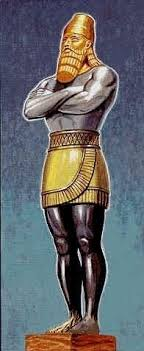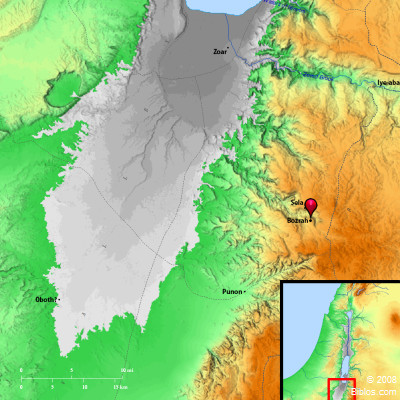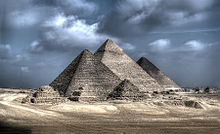Prophecies dealing with Various Gentile Nations
Edom. Jacob’s Brother Esau founded the nation of Edom. Gen 36. Years after his death, Edom refused to help his brother Israel, the nation founded by his brother Jacob. Numbers 20 and they actually delighted in persecuting God’s Chosen people.
Because of this God pronounced doom upon them.
- There commerce was to cease.
- Their race was to become extinct.
- Their land was to become desolate.
Jer 49:17 Also Edom shall be a ruin. Everyone who goes by it shall be amazed and shall hiss at all its plagues.
Jer 49:18 As in the overthrow of Sodom and Gomorrah and its neighbor, says Jehovah, no man shall remain there, nor shall a son of man live in it.
Deep within the deserts of Jordan lies the ancient city of Petra. Through a narrow gorge it emerges into view, revealing awe-inspiring monuments cut into the surrounding cliffs. What is this astonishing city?
Petra
Deep within the deserts of Jordan lies the ancient city of Petra. Through a narrow gorge it emerges into view, revealing awe-inspiring monuments cut into the surrounding cliffs. What is this astonishing city? Who built it, and why?
Two thousand years ago, Petra stood at a crossroads of the ancient Near East. Camel caravans passed through, loaded with spices, textiles and incense from distant regions--and through such commerce, the city flourished. Its people, the Nabataeans, harnessed precious water, enabling the population to soar to perhaps 20,000.
Byzantine Era
Two hundred years after Petra bowed to Roman rule, radical changes swept the empire. In AD 330 Rome's first Christian emperor, Constantine I, shifted his capital eastward a thousand miles, to the city of Byzantium. Renamed Constantinople, this metropolis would now be the seat of Roman emperors. In the new Byzantine Empire, churches--not roads, theaters, or triumphal arches--would signal imperial presence in the provinces.
Though Petra at first clung to its old, officially pagan, gods, Christianity slowly took root. By AD 350 the city boasted its own bishop; a century later it had large Christian churches. But increasingly bypassed by shifting trade routes, Petra had lost its real source of power--commerce. The city, still reeling from the earthquake of AD 363, began its slow decline. The Muslims who swept through the region from southern Arabia in the early 600s seem to have skirted Petra. Yet by AD 700, the valley and ridges once home to perhaps 20,000 people held only a tiny remnant population. Sheep and goats grazed peacefully in Petra's once noisy squares.
Eze 35:3 And say to it, So says the Lord Jehovah: Behold, O Mount Seir, I am against you, and I will stretch out My hand against you, and I will make you a ruin and a waste.
Eze 35:4 I will raze your cities, and you shall be ruined, and you shall know that I am Jehovah.
Eze 35:5 Because you have had a never-ending hatred, and have shed the blood of the sons of Israel by the force of the sword in the time of their calamity, in the time that iniquity had an end,
Eze 35:6 therefore, as I live, says the Lord Jehovah, I will yield you up to blood, and blood shall pursue you. Since you have not hated blood, even blood shall pursue you.
Eze 35:7 So I will make Mount Seir a ruin, and cut off from it the one passing through, and the one returning.
Genesis 36:8 So Esau (that is, Edom) settled in the hill country of Seir.
The Nabataeans were the first of God's whips against the Edomites; for the Nabataeans pushed the Edomites back up into a small parcel of land next to Judah. Then John Hyrcanus I, king-hierarch of Judea, 134-104 BC, subjugated Edom in fulfillment of the above prophecies, "that Jacob shall lay Esau by the heel." Hyrcanus "permitted the Idumeans to remain in their country as free men if they would circumcise their genitals and observe Jewish law." <ordination.org/Idumeans>
Babylon.
Babylon was the first of Four World Empires mentioned in Daniel 2: 31 -43 and 7:1-8
Nebuchadnezzar’s Image
Dan 2:31 You, O king, were seeing. And, behold! A great image! That great image, whose brightness was excellent, stood before you. And its form was dreadful.
Dan 2:32 This image's head was of fine gold; his breast and his arms were of silver; his belly and his thighs were of bronze;
Dan 2:33 his legs were of iron; his feet were part of iron and part of clay.
Dan 2:34 You watched until a stone was cut out without hands, which struck the image upon its feet which were of iron and clay, and broke them to pieces.
Dan 2:35 Then the iron, the clay, the bronze, the silver, and the gold were broken to pieces together. And they became like the chaff of the summer threshing floors. And the wind carried them away, so that no place was found for them. And the stone that struck the image became a great mountain and filled the whole earth.
Dan 2:36 This is the dream. And we will tell its meaning before the king.
Dan 2:37 You, O king, are a king of kings. For the God of Heaven has given you a kingdom, power, and strength, and glory. 
Dan 2:38 And wherever the sons of men, the beasts of the field, and the birds of the heavens live, He has given them into your hand, and has made you ruler over them all. You are this head of gold.
Dan 2:39 And after you shall arise another kingdom lower than you, and another third kingdom of bronze, which shall rule over all the earth.
Dan 2:40 And the fourth kingdom shall be as strong as iron. Since iron crushes and smashes all things; and as the iron that shatters all these, it will crush and shatter.
Dan 2:41 And as to that which you saw: the feet and toes, part of potters' clay and part of iron; the kingdom shall be divided. But there shall be in it the strength of the iron, because you saw the iron mixed with miry clay.
Dan 2:42 And as the toes of the feet were part of iron and part of clay, so the kingdom shall be partly strong and partly brittle.
Dan 2:43 And as you saw iron mixed with miry clay, they shall mix themselves with the seed of men. But they shall not cling to one another, even as iron is not mixed with clay.
Dan 2:44 And in the days of these kings, the God of Heaven shall set up a kingdom which shall never be destroyed. And the kingdom shall not be left to other peoples, but it shall crush and destroy all these kingdoms, and it shall stand forever.
Daniel prophesied the demise of Mighty Babylon [above] as did Isaiah.
Isa 13:17 Behold, I will stir up the Medes against them, who shall not value silver; and they shall not delight in gold.
Isa 13:18 And bows shall dash the young men to pieces; and they shall have no pity on the fruit of the womb; their eye shall not pity sons.
Isa 13:19 And Babylon, the glory of kingdoms, the majestic beauty of the Chaldees, shall be as when God overthrew Sodom and Gomorrah.
This actually happened on the night of Oct 13, 539 B.C. when Darius the Mede captured the city by diverting the water course of the Euphrates river. which had flowed under the walls of the city.
 |
| Saddam Hussein Palace - Ruins ancient palace in foreground. |
Babylon’s remains date back thousands of years and were rediscovered by Robert Koldeway, a German archaeologist, at the end of the nineteenth century. Famous for the Hanging Gardens of Babylon, one of the Seven Wonders of the Ancient World, Babylon was also home to the Ishtar Gate, now in the Pergamon Museum in Berlin. (...)
Artists reconstruction of Ancient Babylon
Medo - Persian Empire.
One of the most remarkable passages on prophecy is found in Daniel 8:1-7;20-21, written beside the banks of Uliai Canal in 551 B.C. It spoke of battles that would not take place until 217 years later. Here he described the crushing defeat of Darius the third (here pictured as the ram), by the Greek, Alexander the Great, (symbolised here as a he-goat) This took place in three decisive battles Granicus in 334 B.C.; Issus in 333 B.C.; and Gaugamela in 331 B.C.
Dan 8:1 In the third year of the reign of King Belshazzar a vision appeared to me, to me, Daniel, after that which appeared to me at the first.
Dan 8:2 And in a vision I looked. And it happened when I looked, I was at Shushan the palace, which is in the province of Elam. And in a vision I looked, and I was by the Ulai Canal.
Dan 8:3 Then I lifted up my eyes, and looked. And behold, a ram with two horns stood before the canal having two horns, and the two horns were high, but one was higher than the other, and the higher came up last.
Dan 8:4 I saw the ram pushing westward and northward and southward; so that no beasts could stand before him, nor any that could deliver out of his hand. But he did according to his will, and became great.
Dan 8:5 And as I was watching, behold, a he-goat came from the west, over the face of the all earth, and did not touch the ground. And the he goat had an outstanding horn between his eyes.
Dan 8:6 And he came to the ram that had two horns, which I had seen standing before the river, and ran to him in the fury of his power.
Dan 8:7 And I saw him come close beside the ram, and he was moved with anger against him, and struck the ram and shattered his two horns. And there was no power in the ram to stand before him. But he threw him down to the ground and stamped on him. And none could deliver the ram out of his hand.
Dan 8:20 The ram which you saw having two horns are the kings of Media and Persia.
Dan 8:21 And the shaggy goat is the king of Greece. And the great horn between his eyes is the first king.
Greece.
In this same chapter of Daniel, Daniel predicts the Dissolution of the Greek Empire (upon the death of Alexander) into four smaller and separate powers each ruled over by one of his generals.
This happened just as he said in exact details in 301 B.C. after Alexander died of a RAGING FEVER at the age of 33 in Babylon.
Dan 7:6 After this I saw, and lo, another, like a leopard, which had four wings of a bird on its back. The beast also had four heads; and rulership was given to it.
Dan 8:8 Then the he-goat became very great. And when he was strong, the great horn was broken. And in its place came up four outstanding ones towards the four winds of the heavens.
Dan 8:20 The ram which you saw having two horns are the kings of Media and Persia.
Dan 8:21 And the shaggy goat is the king of Greece. And the great horn between his eyes is the first king.
Alexander III of Macedon (20/21 July 356 – 10/11 June 323 BC), commonly known as Alexander the Great (Greek: Ἀλέξανδρος ὁ Μέγας, Aléxandros ho Mégasiii[›] from the Greek: ἀλέξω alexo "to defend, help" and ἀνήρ aner "man"), was a King (Basileus) of the Ancient Greek[1][2] kingdom[3] of Macedon, member of the Argead dynasty. Born in Pella in 356 BC, Alexander succeeded his father,Philip II, to the throne at the age of twenty. He spent most of his ruling years on an unprecedented military campaign through Asia and northeast Africa, until by the age of thirty he had created one of the largest empires of the ancient world, stretching from Greece toEgypt and into present-day Pakistan.[4] He was undefeated in battle and is considered one of history's most successful military commanders.[5] Wikpedia
Seeking to reach the "ends of the world and the Great Outer Sea", he invaded India in 326 BC, but was eventually forced to turn back at the demand of his troops. Alexander died in Babylon in 323 BC, the city he planned to establish as his capital, without executing a series of planned campaigns that would have begun with an invasion of Arabia. In the years following his death, a series of civil wars tore his empire apart, resulting in several states ruled by the Diadochi, Alexander's surviving generals and heirs.
Alexander's legacy includes the cultural diffusion his conquests engendered. He founded some twenty cities that bore his name, most notably Alexandria in Egypt. Wikipedia
Rome.
In Daniel 2:40-41 we read :Dan 2:40 And the fourth kingdom shall be as strong as iron. Since iron crushes and smashes all things; and as the iron that shatters all these, it will crush and shatter.
Dan 2:41 And as to that which you saw: the feet and toes, part of potters' clay and part of iron; the kingdom shall be divided. But there shall be in it the strength of the iron, because you saw the iron mixed with miry clay.
Here Daniel rightly predicted that Rome the fourth kingdom (which would come to power) between the times of Nebuchadnezzar and Christ should be ‘as strong as iron.”
And so Rome was. By 300 B.C. Rome became a Major power in the Mediterranean world. By 200 B.C. she had conquered Carthage, her Archenemy, In 63 B.C. the Roman general Pompey entered Jerusalem, Daniel noted in his prophecy, however, that, “the kingdom shall be divided.” This of course happened in A.D. 364.Willmington p.820
The Pula Arena in Croatia is one of the largest and most intact of the remaining Roman amphitheatres
The Roman Pont du Gard aqueduct, which crosses the Gardon River in southern France, is on UNESCO's list of World Heritage Sites
Egypt.
Some 600 years before Christ the prophet Ezekiel wrote:
Eze 29:1 In the tenth year, in the tenth month, in the twelfth of the month, the Word of Jehovah came to me, saying,
Eze 29:2 Son of man, set your face against Pharaoh king of Egypt, and prophesy against him and against all Egypt.
Eze 29:15 It shall be the lowest of the kingdoms, and shall no more exalt itself above the nations. For I will make them so few, that they shall no more rule over the nations.
The History of Egypt is one of the oldest in recorded history. The country was united into a single Kingdom about 3200 B.C. and was ruled by a succession of Dynasties down to the time of Alexander the Great, who conquered Egypt in 332 B.C. We note that Ezekiel did not predict the disappearance of Egypt, as he did concerning Edom Ezek 35:3-7 but simply its demise. The was that Egypt should be cut short and never again become a world power. This was fulfilled to the last letter





No comments:
Post a Comment